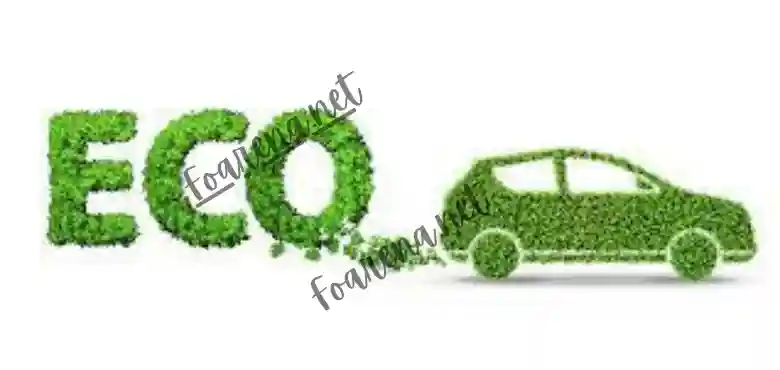Discover sustainable solutions for vehicle repairs to minimize environmental impact. Drive green with eco-friendly repair practices.
The global push towards sustainability has reached every corner of our lives, including how we maintain and repair our vehicles.
Traditional vehicle repair practices often involve the use of hazardous materials, excessive waste, and energy-intensive processes that can have a detrimental effect on the environment.
However, as awareness grows, so does the commitment to finding greener, more sustainable solutions for vehicle repairs. This blog post explores various ways car owners and repair shops can adopt eco-friendly practices to make vehicle maintenance more sustainable.
The Importance of Eco-Friendly Vehicle Repairs
Vehicles are an integral part of modern life, but their maintenance can contribute significantly to environmental degradation.
From oil changes to bodywork, traditional repair methods can result in pollution, waste, and energy consumption. By adopting more sustainable practices, we can significantly reduce the ecological footprint of our automotive upkeep.
Use of Environmentally Friendly Products
One of the simplest yet most effective ways to drive green is by choosing environmentally friendly products for vehicle repairs. Biodegradable cleaners, for example, can replace harsh chemicals, reducing the risk of soil and water contamination.
Similarly, opting for water-based paints over solvent-based alternatives for bodywork can significantly decrease the emission of volatile organic compounds (VOCs), which are harmful to both the environment and human health.
Recycling and Reusing Parts
The automotive repair industry generates a vast amount of waste, much of which can be recycled or reused. Metal scraps, batteries, tires, and even used motor oil can be processed and given a second life.
Repair shops and car owners should prioritize the use of refurbished parts whenever possible, not only to reduce waste but also to conserve the resources and energy required to manufacture new components.
Adopting Energy-Efficient Practices
Energy consumption is another critical aspect to consider when aiming for sustainable vehicle repairs. Repair shops can adopt energy-efficient practices by installing LED lighting, using programmable thermostats, and ensuring that all equipment is properly maintained for optimal performance. Additionally, investing in high-efficiency tools and machinery can further reduce the shop’s overall energy usage.
Implementing Proper Waste Management
Proper waste management is essential in minimizing the environmental impact of vehicle repairs. This involves not only recycling and reusing materials but also safely disposing of hazardous waste such as antifreeze, brake fluid, and solvents. Repair shops should have clear protocols for handling these substances, ensuring they do not end up contaminating soil or water sources.
Supporting Sustainability
When making vehicle repairs more eco-friendly, choosing used Kia engines is a practical sustainability approach. Opting for these refurbished engines reduces waste, prevents landfill disposal, and lowers the demand for new engine production, saving resources and energy.
Additionally, using a used Kia engine can prolong a vehicle’s life, showing a commitment to reducing environmental impact while maintaining performance. This aligns with recycling and reusing parts, providing an actionable way to support eco-friendly repairs.
Educating Customers and Staff
Education plays a pivotal role in driving the shift towards sustainable vehicle repairs. Shop owners can educate their staff on eco-friendly practices, from the use of green products to energy conservation techniques.
Similarly, informing customers about the environmental benefits of sustainable repairs can encourage them to make greener choices, such as opting for recycled parts or choosing services that prioritize sustainability.
Supporting Green Certifications and Initiatives
The automotive repair industry is seeing a growing number of certifications and initiatives aimed at promoting environmental responsibility.
Shops can pursue certifications that recognize their commitment to sustainable practices, providing a competitive edge and reassuring customers of their eco-friendly approach.
Supporting industry-wide initiatives that advocate for greener practices can also contribute to broader change, paving the way for a more sustainable future in vehicle repairs.
The Road Ahead
As we move forward, the importance of sustainable solutions in every aspect of vehicle maintenance and repair will only continue to grow.
Technological advancements, combined with a collective commitment to environmental stewardship, will lead to more innovative and effective methods of reducing the automotive repair industry’s ecological footprint.
By embracing these green practices, repair shops and car owners alike can contribute to a healthier planet while still ensuring their vehicles are in top condition.
Conclusion
Sustainable solutions for vehicle repairs represent a crucial step towards a greener, more responsible approach to automotive maintenance.
By choosing eco-friendly products, recycling and reusing parts, adopting energy-efficient practices, and implementing proper waste management, we can significantly reduce the environmental impact of keeping our vehicles running smoothly.
As the industry evolves, it will be the collective efforts of repair shops, car owners, and the broader community that drive the transition to more sustainable vehicle repairs. Together, we can turn the tide and ensure that our cars not only take us where we need to go but do so in a way that respects and preserves the environment for future generations.






